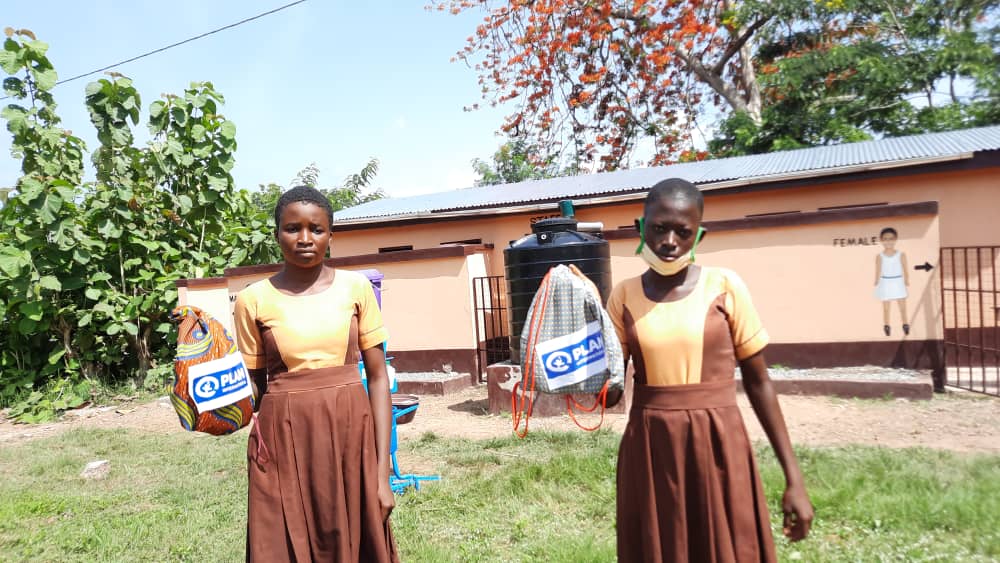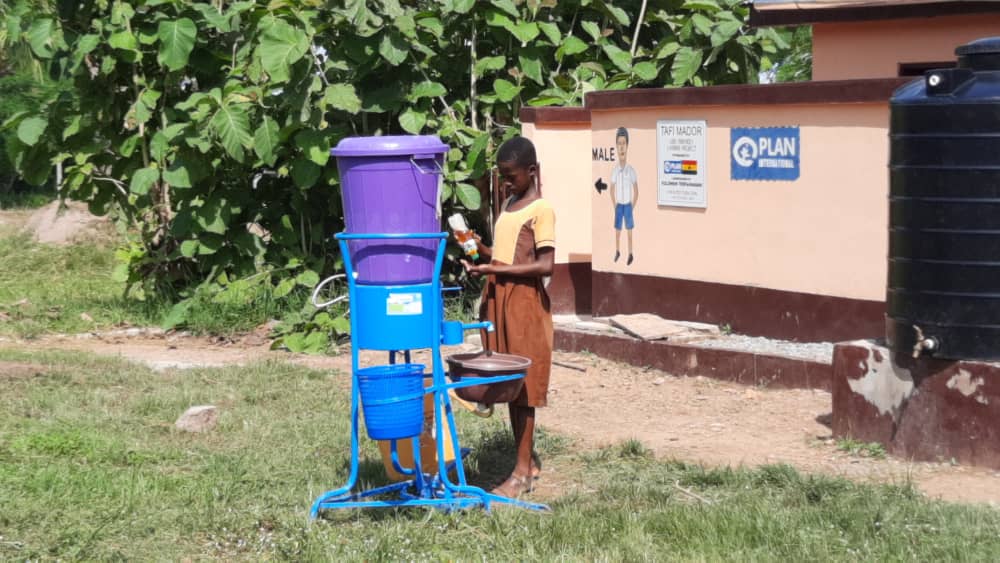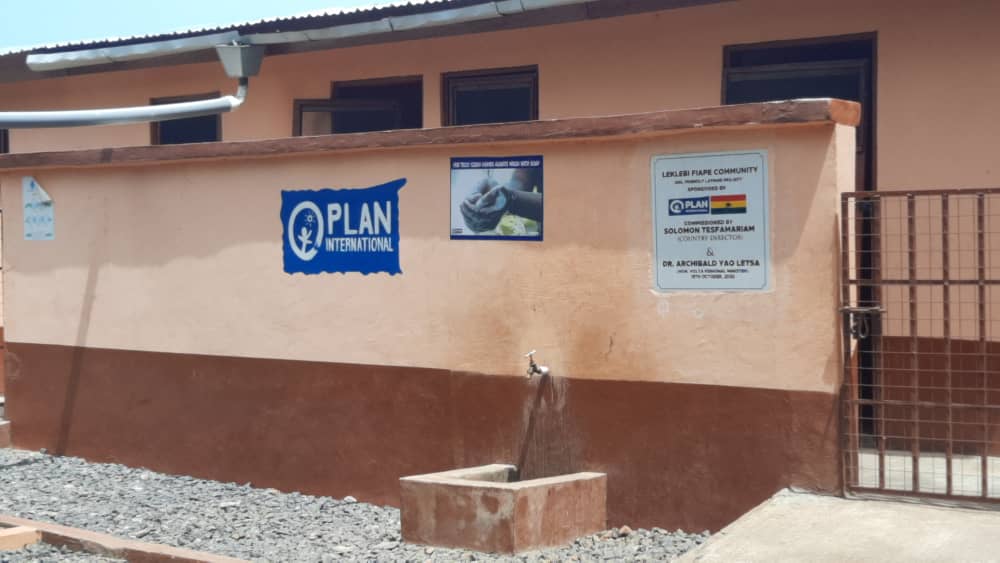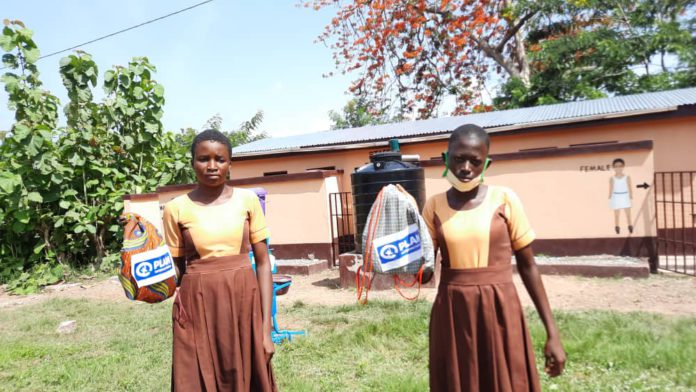Some female students in Tafi Mador RC DA Basic School and Leklebi DA Basic School in the Afadzato South District have narrated how they had to sacrifice classes for work to enable them buy sanitary pads.
“We had to abandon school to plug garden eggs, and also work as labourers in people’s farms in order to raise money to purchase sanitary pads,” they lamented.
According to the girls, they endured this plight until help came from Plan International Ghana, an International Non-Governmental Organisation (NGO).
Plan International is an independent development and humanitarian organisation that advances the rights of children and equality of girls. The NGO has built girl-friendly latrines and supplied them with disposable and reusable sanitary pads
“My friends and I had to plug garden eggs for sale just to save money for sanitary pads because our parents could not afford it and it has really affected our studies,” one of the girls lamented.
The girls also recalled how they had to stay at home for fear of being mocked by their male colleagues because of unavailability of a decent place to change and refresh when they experience the monthly flow.
“Even where to change was a big problem and so we had to stay at home until our monthly flow was over before resuming school. That’s because we were ashamed of what the boys will say about us when we stain our uniforms, until Plan International Ghana built us a girl-friendly latrine and now we can stay in school during our monthly flow,” the girls said

Many school girls, especially in the rural and deprived communities, have had to suffer from the menstrual shame which every female teenager experiences monthly.
Due to this, many girls have had to stay out of school until their menstrual circle is over, a situation which has been a worry to school authorities and parents.
Heads of schools in the 12 communities noted that with the timely intervention of Plan International Ghana, the girls are able to stay in school and their level of concentration has rapidly improved.
According to Victoria Anyo Sumly and Bennett Atabuatsi, the girl-friendly facilities, which have changing rooms to enable the girls to have the privacy to change during their menstrual flows, have really helped the girls.

“Girls who stay 3 kilometers away from school had to go farming to plug garden eggs and labour in people’s farms just to raise money to buy sanitary pads but with the initiative of Plan Ghana, these girls are now staying in school during the menses,” the Heads noted
With the help of school health education programmes, led by selected female teachers, the girls are also taught menstrual hygiene to help them deal with issues relating to menstruation.
The health programmes initiated by Plan International Ghana, is also to educate the girls on menstrual cramps among others as well as build their confidence and improve on their self esteem
The District Education Director in charge of Afadzato South and Ho West ,Celestine Sewoenam Adzoa Korsi -Agordo (Mrs) noted that the initiative by Plan International Ghana came at the right time when the school authorities were worried over the situation of the school girls having to always stay at home during their menstrual periods

Programme Head for Plan International, William Domapielle, noted that Plan International ,in collaboration with German National Office (NGO), implemented a three-year Rural Water, Sanitation and Hygiene (RWASH) Project in the various districts.
The RWASH project, according to him, is expected to contribute to the reduction in morbidity and mortality among children, especially girls, through equitable access to safe, affordable and sustainable water as well as improve sanitation and hygiene by 2021.
“The RWASH project is designed as a scale-up of the Integrated Water Sanitation and Hygiene (IWASH) project; and will be implemented in 36 communities in three districts (Agona East in the Central Region, Akuapem North in the Eastern Region and Afadzato South in the Volta Region,” he said
The project, Mr Domapielle indicated, will specifically increase access to safe, affordable and sustainable drinking water to 32,333 beneficiaries, paying special attention to the needs of vulnerable girls and women in three needy districts in Volta, Eastern and Central regions; increase access to gender-friendly facilities and hygiene promotion to 32,333 beneficiaries in three needy districts in Volta, Eastern and Central Regions; and will influence gender-friendly WASH policy development and implementation at district and national level by October 2021.
A total of 32,333 community members comprising 16,051 women/girls and 16,282 boys/men will benefit directly from the project.
This includes 12,145 schoolchildren (5,832 boys and 6,313 girls). It will also integrate gender activities utilising evidence-based approaches, best practices, and targeted technical expertise as an integral part of WASH and related actions.
Plan International with support from its German National Office is implementing the Rural Water, Sanitation and Hygiene Project in 36 communities in three regions of Ghana, thus Eastern Volta and Central regions.
The Afadazto South District of the Volta Region benefits from this programme. Menstrual Hygiene Management is, therefore, an integral part of this WASH intervention.
So far, over 400 girls have benefited from 12 communities in the Volta Region.

